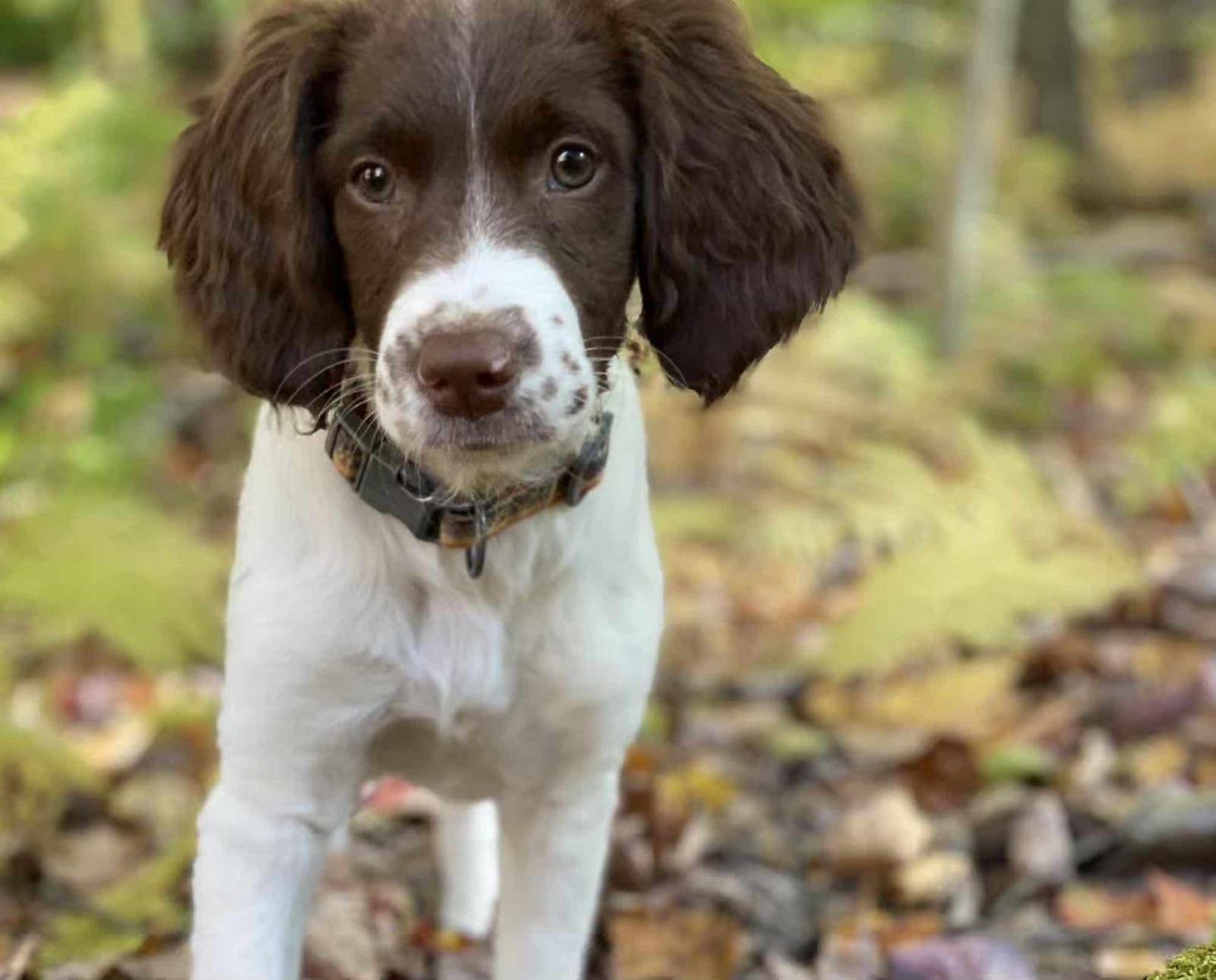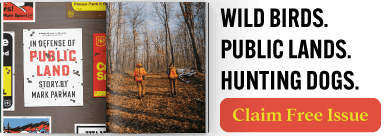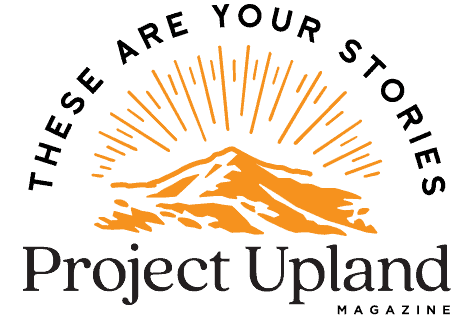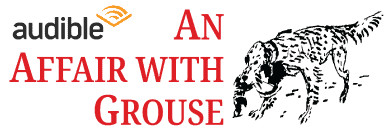Home » Hunting Dogs » A Puppy Buyer’s Guide to Finding a Bird Dog
A Puppy Buyer’s Guide to Finding a Bird Dog

Johnathan Sliski is an educator by trade, Appalachian by upbringing,…
These tips will help you find a breeder and a puppy that will fit with your hunting style
There are a lot of dogs out there. It doesn’t take a master internet user to find someone, somewhere that has a litter from which they’d love to sell you a pup at almost any price you could imagine from innumerable (and potentially questionable) lines. A brief foray into breed-specific or hunting Facebook groups will quickly dissolve any illusion that there are universally-practiced ethics and procedures around dog breeding. It’s a lot of information to digest if you are new to buying dogs and it can be overwhelming when you’re trying to get oriented.
When we bought our first Springer, we were looking for a companion that we hoped would be a serviceable hunting dog. Bird hunting as a dedicated pursuit came a bit later. Since those first experiences, however, I have found myself running headlong into all things upland without slowing down. As I learned more, I began to better understand the type of dog that I wanted our second one to be. My experiences with our first Springer, Dixie, are dear to me. In a lot of ways we are incredibly fortunate that her drive and willingness to learn are as strong as they are. Springers from bench lines can be good hunters, but they aren’t bred with hunting performance in mind. When we decided to get a second dog, however, the process was far different. At this point we were decidedly looking for a dog with the social characteristics that we love about Springers, but with a more intentional hunting pedigree—the natural drive, retrieve, and scenting abilities among other characteristics. And that is one of the goals when researching and considering from whom we want to buy a dog—is this dog more likely than others to display the field qualities I value in a hunting dog?
As I started the research into breeders, it became obvious that there were more things to consider than I ever imagined. It’s been pointed out to me that you’ll spend around one-fifth of your life with a dog. With that in mind, I became aware of what were, for me, critical considerations when looking for a pup. Some of these considerations were natural progressions of my own growing interest in the breed, but some were the results of patient people pointing me in the right direction. I tend to pose these considerations as questions because, for some of them at least, the answers might differ from person to person.
Before you begin: Questions to consider
What kind of hunting do you want to do? While pointing breeds are what most people probably envision when discussing North American upland, we opted for pure flushing dogs in Springers. My friend who waterfowl hunts and is a glutton for punishment runs Labs (i.e., retrievers), whose flushing style is only eclipsed by their undying need to bring stuff to you. To be fair, there are versatile dogs and diverse breeds within that group, not to mention setters and the many other breeds from the European continent and the rest of the world. Understanding what and how you want to hunt is an important consideration in choosing a breed. If you’re new to hunting and don’t know, don’t be afraid to ask questions of people who have similar interests as you do. One thing is true: all bird dog owners like to talk about their dogs.
Many of us already know what breed we want to spend our time with from previous experience. Knowing the health concerns of that breed is critical in making an informed selection. Genetic issues that affect one breed may not be an issue for another. Understanding those issues is essential. Beyond that, finding a breeder that will do those tests is evidence of their own knowledge of the breed and their intention to produce high quality dogs from proven stock.
In the short term, you may have a hard time finding breeders who produce the quality of dog that you consider worth your investment. My own experience was that it was challenging to locate responsive or active field Springer breeders in my state. A critical resource, beyond search engines and email, was the breed’s field trial association website. The English Springer Spaniel Field Trial Association, as an example, lists breeders who participate in organized Springer trials. Those interested in versatile breeds will undoubtedly point you to your local NAVHDA (North American Versatile Hunting Dog Association) chapter, and for good reason. Breeders are all ultimately spread across the country, however, which means that the dog that will be the best fit for you might require a road trip (again, one-fifth of your life) or having the dog flown to you. Our own pup, on a recommendation from a breeder in New York, came from Nebraska.
These factors all intersect at a certain point. We are all limited in hunting days and want to maximize that time with a good dog. Good dogs aren’t accidents. If you’ve found some breeders in which you’re interested, you may have seen what their dogs are up to. Are they running trials? Are they getting called back? Placing? Winning? This isn’t to say that a dog has to be titled to be successful with your pursuits, but a dog from proven lines is more likely to help you meet your own hunting goals. The reality is the best available evidence of that potential is likely to be seen in participation in field trials and hunt tests.
Contacting potential breeders
At some point you’ll have to contact a breeder. It may start with an email; it may start with a phone call. I approached our own purchase as a mutual interview. Obviously, I would have questions for them. What are their breeding goals? What type of home will these dogs fit into well? Will they sell to hunters or only to field trialers? What is the sire’s personality like? The dam’s? I assume that if someone wants to sell dogs from their breedings—from dogs they love and want to succeed—that they are going to have questions for me. What are my goals? What will I use this dog for? How will I ensure this dog receives the exercise and attention it requires? How will I ensure it receives the training required to help it be successful in the field? Will I do it myself or pay to have someone else do it? What equipment and resources (i.e., birds) will I need for that? Being prepared to answer those questions is evidence of your own fitness for that dog.
Let’s say you’ve answered the above questions satisfactorily; you’ve committed to looking beyond your zip code or area code and you’ve emailed a breeder. That means we have to talk about one of those things our parents told us not to discuss with strangers: money. If you pay $1,200 for a dog that lives exactly 13 years then you’ll be paying around 25 cents a day. A dog from proven lines, whose personality and character are shaped by intentional decisions from people who are deeply dedicated to furthering that breed, is worth such an investment. Gun dogs from proven lines cost money. There is no way around it. I know there are good hunting dogs that didn’t cost that, or were rescues, or what have you, but if you’ve done your homework then you will know what a proven dog in your breed of choice is going to cost. Beyond field performance, however, is an increased likelihood that the dog’s personality and character are going to be consistent with your expectations. I know that someone online is selling purebred Whatevers in the next town over and they only want $400 (or maybe $1,200), but unless I’ve done the above homework and gotten satisfactory answers, I’m not going anywhere near it. The reality is that the price of a well-bred dog is not likely to be the most significant expense throughout that dog’s life. Depending on your dog food of choice, as an example, you may expect to spend several thousand dollars alone over that time.
You’ve found a breeder, now what?
You’ve found a breeder. That’s great news. The great news, too, is that they’ve met you, even if it was through a phone call. Buying a dog is a commitment. The fact that there are this many questions is evidence to that point. I am under no illusion that these are all of the questions. The reality is that depending on your location, budget, breed of choice, etc., there may be even more questions. You may have friends who are very experienced with dogs who can streamline this process even more for you because they’ve done this work on their own (and you trust their judgment and experience). At the end of the day, however, the puppy will be yours at your home. Your confidence with the decision you’ve made will set the positive course we all so desperately want with our new pups. So, go for it!
Read: How to Prepare for a New Puppy
The deeper I’ve gotten into bird hunting, the stronger my connection with my dogs has become. The connections between the birds and the land and the things our dogs were bred to do are incredible and deeply personal. To be a part of this interrelatedness is a joyful opportunity, but bears with it a responsibility, not only for the birds we pursue and the land on which we pursue them, but for the dogs we follow in that pursuit. As we push conservation forward, we also involve ourselves in the generations old, responsible development of great gundogs.
Johnathan Sliski is an educator by trade, Appalachian by upbringing, and bird hunter by sheer dumb luck. Born and raised in East Tennessee, he has long been enthusiastic about the outdoors. Moving to Central Pennsylvania allowed that passion to find a new outlet in hunting and fishing, but specifically in bird hunting with flushing dogs. Johnathan lives with his wife, Emily, and their two Springer Spaniels, Dixie and Fern.



